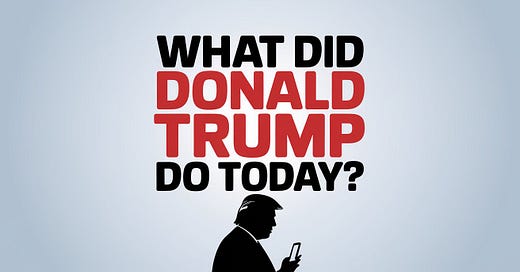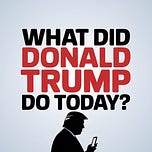Donald Trump’s Pittsburgh rally and subsequent media appearances by top officials showcased a second-term administration marked by theatrical populism, economic distortion, and institutional defiance. At the rally, Trump announced a 50% steel tariff and celebrated the Nippon Steel–U.S. Steel deal, though his speech was derailed by personal tangents, exaggerated economic claims, and unsubstantiated promises like a “Trump account” for newborns. He mischaracterized the foreign acquisition as a patriotic win and framed tariffs as loyalty tests, not policy tools. His amplification of a Truth Social post claiming Joe Biden was replaced by clones underscored his embrace of conspiracy rhetoric, weaponizing disinformation to undermine democratic legitimacy. Separately, Trump’s warning that court rulings against tariffs would lead to national economic ruin exemplified his strategy of fear-driven political messaging, discrediting judicial oversight in the process.
Interviews with his economic team reinforced this pattern. Economic Council Director Kevin Hassett evaded basic questions on inflation, tariffs, and trade, offering contradictory logic and partisan spin rather than coherent policy. Treasury Secretary Scott Bessent’s performance was similarly evasive; he relied on slogans and anecdotes, dismissed inflation data, and offered no serious defense of growing debt or tariff impacts. Commerce Secretary Howard Lutnick doubled down on unverified economic successes, mocked critics, and treated Truth Social as a policy platform, ignoring global trade norms. Meanwhile, OMB Director Russ Vought defended aggressive executive overreach and the rollback of congressional spending authority, downplaying constitutional violations while pushing a radical restructuring agenda tied to Project 2025. His dismissive responses to bipartisan criticism and human consequences reflected ideological zeal over governance.
Finally, Secretary of Defense Pete Hegseth’s speech at the Shangri-La Dialogue veered into campaign-style theatrics. Intended as a statement of Indo-Pacific strategy, it devolved into nationalist bombast, historical revisionism, and confrontational rhetoric against China, prioritizing spectacle over diplomacy. Across these events and appearances, the Trump administration demonstrated a consistent rejection of evidence-based policymaking, institutional norms, and global cooperation in favor of theatrical loyalty, economic nationalism, and political mythology.












Share this post